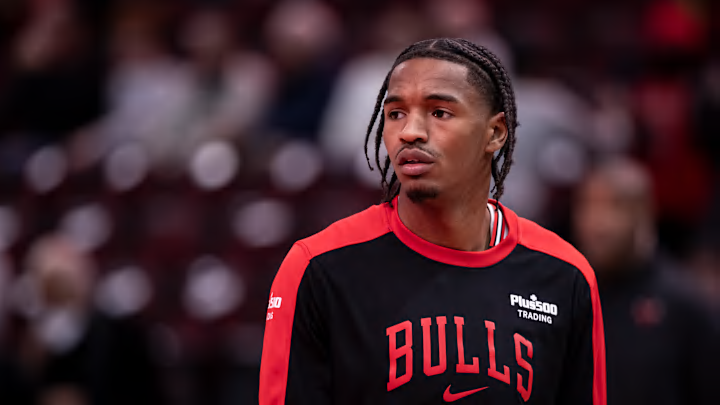If there’s one undisputed fact in the NBA, it’s that the Oklahoma City Thunder has the league’s best front office. They’ve expertly navigated the post-Russell Westbrook era, stockpiling draft capital while consistently pulling off shrewd trades and smart signings.
In CBS Sports’ Front Office rankings, the Bulls have finished 30th and 29th in recent iterations. By contrast, the Thunder have consistently ranked first—a placement only strengthened by their NBA championship.
Therefore, the Bulls should do everything possible to replicate the Thunder’s front office model. While much of the league has zagged, Chicago has zigged, avoiding trades and neglecting to stockpile draft capital despite undergoing a pseudo-rebuild.
The Thunder mastered a savvy roster-building tactic
One of the Thunder’s cleverest roster-building moves has flown under the radar, even as Sam Presti executes it repeatedly. The General Manager has consistently found value in late-round draft picks. Rather than letting these players finish their inexpensive second-round contracts, he declines their team options and re-signs them to long-term deals with declining value.
For example, Presti first pulled off this move with Isaiah Joe and Aaron Wiggins. Joe, who was originally drafted by the Philadelphia 76ers in 2020, signed a three-year, $5.9 million contract with the Thunder in 2022, including a team option for the third season. After averaging over 8.2 points per game and knocking down more than 300 three-pointers in his first two seasons with Oklahoma City, Presti declined that team option and re-signed Joe to a four-year, $48 million deal, which also includes another team option.
Wiggins, by contrast, was selected by the Thunder in the second round of the 2021 NBA Draft. He initially signed a two-way deal, which was converted to a standard NBA contract in January 2022. That contract was a four-year, $6.3 million deal with a team option in the fourth year.
Wiggins immediately outplayed his inexpensive contract, averaging 8.3 points as a rookie, 6.8 in year two, and 6.9 in year three. Although his counting stats dipped, it reflected Oklahoma City’s meteoric rise from rebuilding squad to contender. During the Thunder’s ascent, Wiggins improved his efficiency, shooting 56.2 percent from the field and 49.2 percent from three in 2023-24. Rather than accept his $1.9 million team option, Presti declined it and re-signed Wiggins to a five-year, $45 million contract with a declining structure—and yes, it included another team option in year five.
After two savvy re-signings, Presti didn’t stop there. He used the same tactic to lock up versatile big man Jaylin Williams, selected 34th in 2022. Williams’ stats don’t jump off the page like Joe’s or Wiggins’, but he notched three triple-doubles last season and has already emerged as one of the squad’s most vocal leaders. Accordingly, Presti declined Williams’ fourth-year option and re-signed him to a three-year, $24 million contract with a declining structure and a team option.
Presti’s tactic is rarely used, even though financial security is paramount—especially for a second-rounder coming off a standard rookie contract with no guarantees in the final two seasons.
Chicago must emulate Oklahoma City's strategy as it builds its roster
The Bulls don’t have many underrated players to apply this strategy to. Still, they could have used it on Dalen Terry, who has flashed at times but hasn’t yet made a major impact. With the hype around Terry growing ahead of this season, if he lives up to it, he could earn a contract far larger than what he might have commanded a year ago.
The Thunder’s tactic could readily apply to Julian Phillips. The former second-round pick has spent two seasons in Chicago, averaging 3.8 points and 1.7 rebounds per game. While his stats aren’t eye-catching, he’s proven to be a reliable wing with plenty of room to grow as a 3-and-D contributor.
Rather than picking up Phillips’ modest $2.4 million team option for 2026-27, the Bulls could decline it and extend him for multiple seasons, betting on his improvement. After all, a contract similar to Williams’ three-year, $24 million deal wouldn’t raise eyebrows—especially a year from now, when the salary cap is expected to rise. Structuring it with declining value and a team option would also safeguard Chicago’s financial flexibility.
The time is now for the Bulls to start making smart financial moves. The Thunder have shown that signing big-name stars isn’t the only way to build a perennial powerhouse. It begins with savvy acquisitions, betting on development, and rewarding those players with long-term deals.
Chicago has already taken steps this offseason, re-signing Tre Jones to a three-year deal with a team option and Josh Giddey to a four-year, $100 million contract. Still, more work remains—re-signing rotation players like Terry and Phillips will be crucial as the Bulls continue building toward contender status.
